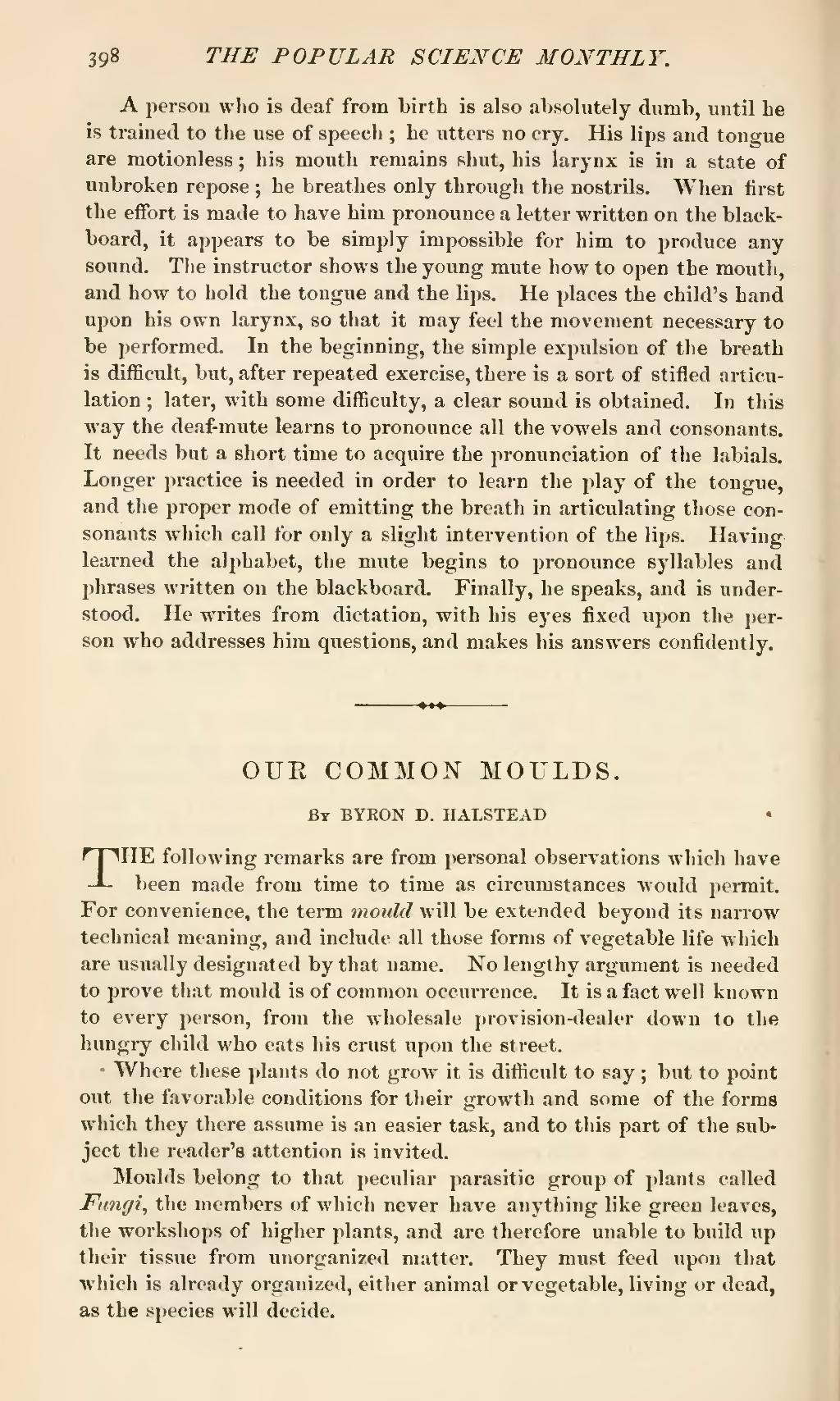A person who is deaf from birth is also absolutely dumb, until he is trained to the use of speech; he utters no cry. His lips and tongue are motionless; his mouth remains shut, his larynx is in a state of unbroken repose; he breathes only through the nostrils. When first the effort is made to have him pronounce a letter written on the black-board, it appears to be simply impossible for him to produce any sound. The instructor shows the young mute how to open the mouth, and how to hold the tongue and the lips. He places the child's hand upon his own larynx, so that it may feel the movement necessary to be performed. In the beginning, the simple expulsion of the breath is difficult, but, after repeated exercise, there is a sort of stifled articulation; later, with some difficulty, a clear sound is obtained. In this way the deaf-mute learns to pronounce all the vowels and consonants. It needs but a short time to acquire the pronunciation of the labials. Longer practice is needed in order to learn the play of the tongue, and the proper mode of emitting the breath in articulating those consonants which call for only a slight intervention of the lips. Having learned the alphabet, the mute begins to pronounce syllables and phrases written on the blackboard. Finally, he speaks, and is understood. He writes from dictation, with his eyes fixed upon the person who addresses him questions, and makes his answers confidently.
| OUR COMMON MOULDS. |
By BYRON D. HALSTEAD
THE following remarks are from personal observations which have been made from time to time as circumstances would permit. For convenience, the term mould will be extended beyond its narrow technical meaning, and include all those forms of vegetable life which are usually designated by that name. No lengthy argument is needed to prove that mould is of common occurrence. It is a fact well known to every person, from the wholesale provision-dealer down to the hungry child who eats his crust upon the street.
Where these plants do not grow it is difficult to say; but to point out the favorable conditions for their growth and some of the forms which they there assume is an easier task, and to this part of the subject the reader's attention is invited.
Moulds belong to that peculiar parasitic group of plants called Fungi, the members of which never have anything like green leaves, the workshops of higher plants, and are therefore unable to build up their tissue from unorganized matter. They must feed upon that which is already organized, either animal or vegetable, living or dead, as the species will decide.

